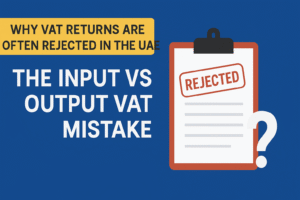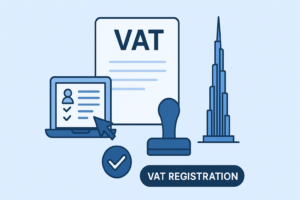Filing corporate tax returns is one of the most important responsibilities for any business owner. Accurate tax filing not only ensures compliance with government regulations but also protects your company from unnecessary penalties and financial risks. Whether you operate a small business that has recently incorporated or manage a well-established corporation, understanding the process of filing corporate taxes is essential for smooth operations and long-term success.
Understanding Corporate Tax Returns
Corporate tax returns are official documents filed with tax authorities that report a company’s income, expenses, profits, and tax obligations for the year. Unlike personal income tax returns, corporate filings are often more complex due to the number of deductions, credits, and compliance requirements involved.
Corporations are considered separate legal entities from their owners, which means they are taxed independently. Depending on the structure of your corporation, the type of return you file will differ. For instance, C corporations typically file Form 1120 in the U.S., while S corporations use Form 1120-S, which passes profits and losses through to shareholders. Additionally, many states and local governments require separate corporate tax filings, adding another layer of responsibility.
Preparing for Corporate Tax Filing
Successful tax filing starts long before the deadline. Keeping accurate and well-organized records throughout the year makes the process more manageable. Essential documents include profit and loss statements, balance sheets, bank statements, payroll reports, and receipts for deductible expenses. Businesses that maintain consistent bookkeeping practices often find corporate tax season less stressful and are better positioned to maximize their deductions.
Gross income plays a central role in calculating corporate taxes. This includes all revenue streams such as sales, dividends, rental income, and royalties. Once gross income is calculated, corporations can reduce their taxable income by deducting legitimate business expenses. These can include employee salaries, office rent, utilities, professional services, depreciation of equipment, marketing costs, and business travel.
Tax credits provide additional opportunities for savings. For example, corporations engaged in research and development may qualify for the R&D credit, while others may benefit from energy efficiency incentives or employment-related credits. Being aware of all available credits can significantly reduce overall tax liability.
Filing Requirements and Deadlines
Every corporation must meet specific filing requirements based on its structure. C corporations pay corporate income tax directly to the government, while S corporations act as pass-through entities, with income and losses reported on shareholders’ personal returns. In addition to federal requirements, many corporations are also responsible for paying state and local taxes.
Deadlines are critical. In the U.S., corporate tax returns are typically due on the 15th day of the fourth month after the end of the corporation’s fiscal year. Missing the filing date can result in penalties and interest charges, which can quickly add up. Extensions are available, but it’s important to note that an extension only delays the filing of paperwork—it does not extend the time allowed to pay taxes owed.
Payment and Recordkeeping
If taxes are owed, corporations must submit payment by the filing deadline. Payment options usually include electronic funds transfer, checks, or online payment systems provided by tax authorities. Ensuring timely payment prevents the accrual of penalties and demonstrates financial responsibility.
After filing, corporations should retain copies of their tax returns and supporting documents for several years, typically at least seven. These records are essential if the business faces an audit or needs to verify past filings. Having complete documentation provides peace of mind and safeguards against potential disputes with tax authorities.
The Role of Tax Professionals
While some corporations rely on accounting software to prepare and file their taxes, many choose to work with professional accountants or certified public accountants (CPAs). A tax professional can help identify deductions and credits that may otherwise be overlooked, ensure compliance with changing tax laws, and develop strategies to reduce future tax liabilities.
For larger corporations or businesses with complex financial structures, professional guidance is highly recommended. CPAs can also represent businesses during audits and provide valuable advice on long-term tax planning. Even smaller corporations can benefit from a professional review to confirm the accuracy of their filings.
Common Mistakes in Corporate Tax Filing
Despite the importance of accurate corporate tax filing, mistakes are surprisingly common. One frequent error is failing to track deductible expenses throughout the year, leading to missed savings opportunities. Misclassifying expenses is another issue that can raise red flags with tax authorities.
Another mistake is overlooking state or local tax obligations. While federal filings receive much of the attention, state tax agencies impose their own rules and penalties for late or incorrect filings. Inaccurate reporting of income or failure to reconcile financial statements may also lead to audits and fines. By maintaining proper financial records and reviewing returns carefully, corporations can avoid these costly errors.
Why Corporate Tax Filing Matters
Filing corporate tax returns is not just about compliance; it’s also a strategic opportunity for businesses. Proper tax planning can improve cash flow, reduce liabilities, and allocate more resources toward growth and expansion. Companies that understand their tax obligations and take advantage of available deductions and credits often enjoy a competitive edge in their industries.
Furthermore, responsible tax filing builds credibility with stakeholders, including investors, shareholders, and partners. A corporation that manages its taxes well demonstrates strong financial governance and long-term stability.
Final Thoughts
Corporate tax filing may seem daunting, but with careful preparation and an understanding of the process, it becomes a manageable task. From maintaining accurate records and identifying deductions to meeting filing deadlines and seeking professional support when needed, each aspect of the process contributes to smoother operations and financial security.
Whether you choose to handle your tax returns internally or hire a professional, approaching corporate tax filing proactively ensures compliance, minimizes risks, and supports your company’s financial success.





